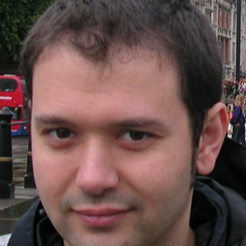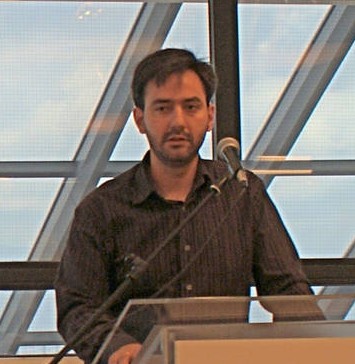Rationale
In the past years, research on learning analytics has experienced a considerable growth, grabbing more and more attention from scholars and practitioners from many different fields, such as education, computing, statistics, information systems, psychology and sociology, among others. Scientific contributions to the topic are steadily increasing, and it is easy to observe very different approaches to the same problems, as well as identical approaches to very different problems. These advances in research open ways of knowing and discovering, but at the same time they pose new research questions and avenues of research, leading to a spiral of evolution from the interaction between educational research and learning analytics (Conde & Hernández-García, 2015).
In the context of the Technological Ecosystems for Enhancing Multiculturality Conference, the different papers presented in the track on learning analytics in the past two years have been an example of this diversity, despite the focus of the tracks in specific aspects of learning analytics. More interestingly, the subsequent debates with both discussants and the audience that follow the presentations have raised many interesting issues in learning analytics research, confronting visions that could complement but also oppose each other, such as:
- Educational vs. Technical approaches
- Behaviorist vs. Instructional approaches
- Useful vs. Irrelevant information
- Automated vs. Semi-automated vs. Non-automated mechanisms
- Ethical views on the use of learning analytics
- Standard vs. Proprietary systems
- Tiny vs. Big data for learning analytics
Consequently, as new advances are made public the boundaries of learning analytics research are becoming blurrier, in what seems to have transformed the scope of learning analytics into an endless horizon. Adding to this, research on learning analytics has focused mainly on the analysis of educational data from learning management systems (and, more recently, MOOCs), but recent innovations in educational technologies (e.g. multimodal learning) and pedagogical approaches (e.g. personal learning environments, game based learning, virtual worlds) that can also benefit from the application of learning analytics, are pushing those boundaries even further.
Topics
This track aims therefore to address these concerns in order to integrate the multiple views and aspects of learning analytics, and to discover solid paths that may guide researchers on their journey through this endless horizon. The Call for Papers of this track is then open for submissions covering the following topics:
- Discussion on controversial topics on learning analytics:
- Educational/pedagogical vs. technical approaches
- Tiny data and big data
- Behaviorism and learning analytics
- Ethical concerns about learning analytics
- Development of common frameworks for learning analytics:
- Definition of reliable indicators for learning analytics
- Scope and boundaries of learning analytics
- Integration of academic and learning analytics
- Standards for learning analytics
- System interoperability in learning analytics
- Generalizability of results in learning analytics
- Learning analytics for automation of learning processes
- “Core” learning analytics
- Predictive and early warning systems
- Discourse analytics
- Integration of learning analytics with new technologies and educational innovation, including:
- Virtual worlds
- Multimodal learning
- Social networks
- PLEs
- Game based learning
- Competence/skill assessment
Paper language
English
Presentation
The different sessions will be held as panels consisting of a maximum of six presenters, and moderated by the co-chairs.
For each session, authors will briefly present an overview of their submission, with a maximum time allowance of five minutes. This presentation shall not be a summary of the submission but rather a general context of their research.
Following the presentations, the moderators will start a debate with the authors addressing the main contributions of each paper, focusing on common and divergent points. This discussion will have a duration of between forty-five and sixty minutes, and may include active participation from the audience in an open round of questions.
Presentation language: English
Submission
Submission date: June 14th, 2015, http://teemconference.eu/dates/
Submission format: http://teemconference.eu/submission/
Submissions must be done through https://www.easychair.org/conferences/?conf=teem2015, choosing this track before to proceed.
Track Scientific Committee
Miguel Ángel Conde-González, Ph.D. (Universidad de León, Spain) – Co-chair.
Ángel Hernández-García, Ph.D. (Universidad Politécnica de Madrid, Spain) – Co-chair
Amílcar Oliveira, Ph.D. (Universidade Aberta, Portugal) – Co-chair
Abelardo Pardo, Ph.D. (The University of Sydney, Australia)
Adam Cooper, Ph.D. (University of Bolton, United Kingdom)
Agustín Carlos Caminero-Herráez, Ph.D. (Universidad Nacional de Educación a Distancia, Spain)
Ana Isabel Jiménez-Zarco, Ph.D. (Universitat Oberta de Catalunya, Spain)
Angel A. Juan, Ph.D. (Universitat Oberta de Catalunya, Spain)
Ángel F. Agudo-Peregrina, Ph.D. (Universidad Politécnica de Madrid, Spain)
Ángel Fidalgo-Blanco, Ph.D. (Universidad Politécnica de Madrid, Spain)
Antonio Fumero-Reverón, Ph.D. (Universidad Politécnica de Madrid, Spain)
Antonio Robles-Gómez, Ph.D. (Universidad Nacional de Educación a Distancia, Spain)
Baltasar Fernández-Manjón, Ph.D. (Universidad Complutense de Madrid, Spain)
Camino Fernández-Llamas, Ph.D. (Universidad de León, Spain)
David Griffiths, Ph.D. (University of Bolton, United Kingdom)
Dragan Gasevic, Ph.D. (Athabasca University, Canada)
Félix José Pascual-Miguel, Ph.D. (Universidad Politécnica de Madrid)
Francisco José García-Peñalvo, Ph.D. (Universidad de Salamanca, Spain)
Gustavo Ribeiro Alves, Ph.D. (Instituto Superior de Engenharia do Porto, Portugal)
Inés González-González, Ph.D. (Universitat Pompeu Fabra, Spain)
Javier Alfonso-Cendón, Ph.D. (Universidad de León, Spain)
Julià Minguillón, Ph.D. (Universitat Oberta de Catalunya, Spain)
Luis Panizo-Alonso (Universidad de León, Spain)
Marcus Specht, Ph.D. (Open Universiteit Nederland, Netherlands)
María Arcelina Marques, Ph.D. (Instituto Superior de Engenharia do Porto, Portugal)
Mariluz Guenaga, Ph.D. (Universidad de Deusto, Spain)
Milos Milovanovic, Ph.D. (Univerzitet u Beogradu, Serbia)
Miroslav Minovic, Ph.D. (Univerzitet u Beogradu, Serbia)
Nic Nistor, Ph.D. (Universität der Bundeswehr München and Ludwig Maximilians Universität München, Germany)
Pedro José Muñoz-Merino, Ph.D. (Universidad Carlos III, Spain)
Rebecca Ferguson, Ph.D. (The Open University, United Kingdom, and Learning Analytics Community Exchange (LACE))
Roberto Therón, Ph.D. (Universidad de Salamanca, Spain)
Salvador Ros-Muñoz, Ph.D. (Universidad Nacional de Educación a Distancia, Spain)
Santiago Iglesias-Pradas, Ph.D. (Universidad Politécnica de Madrid, Spain)
Teresa Oliveira, Ph.D. (Universidade Aberta, Portugal )
Teresa Sancho, Ph.D. (Universitat Oberta de Catalunya, Spain)
Vicente Matellán-Olivera, Ph.D. (Universidad de León, Spain)
Special Issue
Under negociation.
More info
 Dr. Miguel Ángel Conde-González
Dr. Miguel Ángel Conde-González
Universidad de León
Campus de Vegazana, s/n
24071 León
Spain
 (+34) 98 729 3418
(+34) 98 729 3418
 miguel.conde@unileon.es
miguel.conde@unileon.es
 Dr. Ángel Hernández-García
Dr. Ángel Hernández-García
Universidad Politécnica de Madrid
Spain
 (+34) 91 549 5700 (ext. 2112)
(+34) 91 549 5700 (ext. 2112)
 angel.hernandez@upm.es
angel.hernandez@upm.es
 Dr. Amílcar Oliveira
Dr. Amílcar Oliveira
Universidade Aberta
Rua Braamcamp, nº 90
1250-052 LISBOA
Portugal